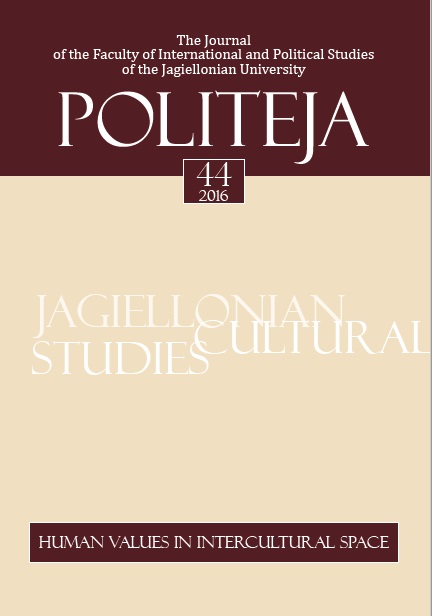Values – the Core of Culture
Values – the Core of Culture
Author(s): Leon Benigny DyczewskiSubject(s): Social Sciences, Sociology, Sociology of Culture
Published by: KSIĘGARNIA AKADEMICKA Sp. z o.o.
Keywords: cultural values; core values; values in modern society
Summary/Abstract: Cultural values are formed by a particular community and not individually. Any member of a given community comes across these values and may assume an individual attitude towards them. Discovering values and exploring them is a defining characteristic of a free, thinking, and active individual. In the culture of any society there are values on which there is a general agreement; they are the basis of its identity; actions of social institutions and individuals focus upon them; they create a stimulating environment; their implementation binds society together; they unite what is fragmented and universalize what is individual and temporary. Such values are called central or native values (A. Kłoskowska) or higher values (S. Ossowski). They determine the quality of a given society and its cultural specificity. In any culture individuals seek self-fulfilment, but it always happens in the social context. Due to the fact that culture always has both social and individual character, a social group maintains the same culture and at the same time develops it. Each new generation enters the heritage of previous generations and adds something new to it but in compliance with values that have already been provided. Material products and behaviours are subject to constant change, many become forgotten, but values that are the basis for their formation remain and continue to stimulate new actions. This means that culture is a social message and a creation that requires human effort of adhering to what has already been valuable to individuals and society but at the same time creating something new that is in close correlation with the existing heritage. Fidelity to roots “is always creative, ready to descend into the depths, open to new challenges, alert to the ‘signs of the times’ […] Fidelity to roots means above all the ability to create an organic synthesis of perennial values, confirmed so often in history, and the challenge of today’s world” ( John Paul II 2000: 204). So far, significant changes in individual and social life in the European culture have taken place with the dissemination of the following values arranged in threes: truth – goodness – beauty; faith – hope – love; freedom – equality – brotherhood. Undoubtedly, they are all spiritual values. The first three values served as the basis for Greek democracy; the next three as the basis for the development of Christian communities; the last three values underline the development of modern international relations where every nation and every state has a guaranteed right to its existence and development but with respect for individual rights. This context raises the question – which triad of values would be most beneficial for today’s modern societies? Most certainly the value of solidarity should appear among them because this idea was stated by the social movement that freed societies from the totalitarian structure of Soviet politics. The dynamics of the implementation of this value resulted in the fall of the Berlin Wall and initiated a more complete unification of Europe. Apart from solidarity, two more values should also appear: human dignity and social justice. Therefore, the triad of values that could be the basis for the development of modern society would be: human dignity, justice, solidarity within each society and on an international scale.
Journal: Politeja - Pismo Wydziału Studiów Międzynarodowych i Politycznych Uniwersytetu Jagiellońskiego
- Issue Year: 13/2016
- Issue No: 44
- Page Range: 143-169
- Page Count: 27
- Language: English

